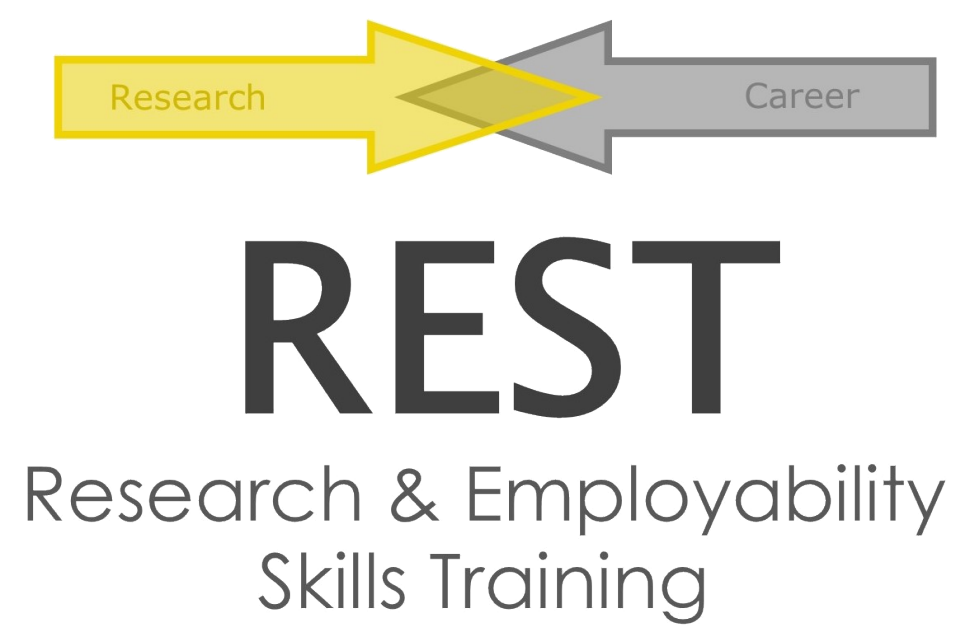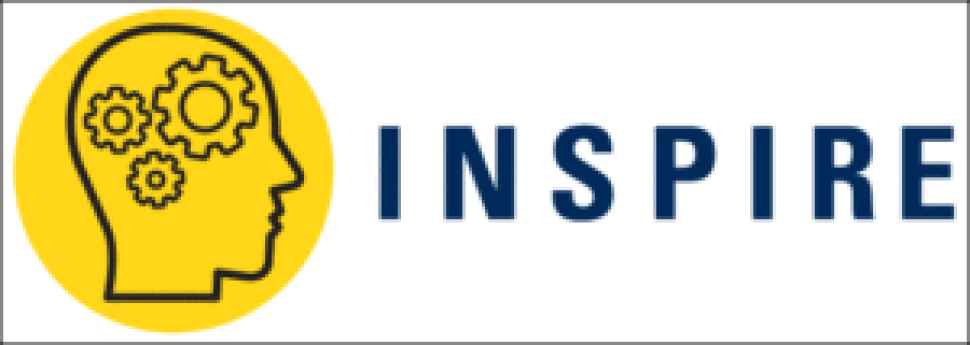Research and Employability Skills Training

Research and Employability Skills Training (REST) is a compulsory, structured training program for all HDR students. REST will provide you with a skills training framework that you can take with you to further studies or careers. It is a tool to analyse, record, reflect on and demonstrate the skills you gain throughout your candidature, be that through structured training activities or the everyday learning that happens throughout your studies.
The aims of Rest:
The aims of REST are to:
- Provide a structured and comprehensive skills development program for all HDR students which includes research and transferrable skills employers seek;
- Ensure all HDR students, regardless of their physical location, are able to access the program through online delivery and activity completion;
- Enable students to identify their development needs and plan, document and control their professional development journey, reflecting on their learning;
- Ensure that upon completion, students are able to articulate and demonstrate the skills and attributes they have developed throughout their candidature through documented evidence and certification.
REST is a skills training program that consolidates all research and transferrable skills training across the university into one program. It is an individualised program, where students choose the development most relevant to them at particular stages of their candidature. The program uses a self-reflective approach, asking students to reflect on their skills proficiency rather than meeting certain criteria (such as a set amount of points or hours under a domain). REST recognises all development activities, including experiential activities, taking into consideration the skills the students already posses through prior training or work experience.
REST will provide you with a skills training framework that you can take with you to further studies or careers. It is a tool to analyse, record, reflect on and demonstrate the skills you gain throughout your candidature, be that through structured training activities or the everyday learning that happens throughout your studies. Through structured development activities and milestones, you will be asked to reflect on the skills you are acquiring and the ways you are utilising those skills.
This is not extra work or training that you have to undertake - REST recognises everything you are already doing and helps you reflect in the skills you are developing. It also consolidates all training activities relevant to HDR students in one place, under the one framework, so that the development is readily available when you decide that you need it.
We have built the skills development module to be an iterative, reflective process, helping you to assess, identify, develop and demonstrate the skills you already have, those you need to develop and those that you are already developing. In the process of a HDR, you gain a lot of knowledge, produce new knowledge and develop a lot of new skills. Throughout this time, you are busy planning and conducting your research study, writing up your findings, publishing papers, producing a thesis. Most of these will be skills you previously did not possess, but develop throughout your study without really realising that you are developing them.
At the end of the thesis, when applying for jobs, grants or promotions, you will be asked to demonstrate those skills. Having a structured skills development process, where you plan, identify and reflect on the skills that you are gaining as you are developing them, will help you identify, reflect on and demonstrate those skills at the end. Throughout your candidature, you will be producing a skills profile (through skills completion), compiling evidence of skills development (though activity completion) and addressing criteria (though Graduate Attributes at REST Certification), that will help you produce a portfolio to assist with the next step beyond the HDR.
To get started, it is important to familiarise yourself with the Doctoral Graduate Attributes and understand the different components of REST and skills development. There are two systems in place - the REST Canvas site, and the Inspire skills development module. You can read more about these below. Start by registering in the Canvas site and reviewing the introductory materials. These will guide you through all the steps and resources.
The Australian Qualifications Framework (AQF) states that Doctoral Degree graduates need to have a systematic and critical understanding of a complex field of learning and specialised research skills for the advancement of learning and/or for professional practice.
Graduates at this level will have expert, specialised cognitive, technical and research skills in a discipline area to independently and systematically:
- engage in critical reflection, synthesis and evaluation
- develop, adapt and implement research methodologies to extend and redefine existing knowledge or professional practice
- disseminate and promote new insights to peers and the community
- generate original knowledge and understanding to make a substantial contribution to a discipline or area of professional practice
Graduates at this level will apply knowledge and skills to demonstrate autonomy, authoritative judgement, adaptability and responsibility as an expert and leading practitioner or scholar. They are expected to have high-level analytical, critical and data analysis skills relevant to their discipline. They must be good communicators, able to robustly defend their work, and justify their approach, methodology and findings. They must also be able to explain the implications of their work and how these relate to previous work in their particular discipline.
Australian Council for Graduate Research Good Practice Principles articulate a set of standards considered to be essential for the delivery of graduate research programs. Principle 3 on Candidate Development states that:
Graduate research candidates are supported to undertake original research and scholarly activities whilst developing key research and employability skills for academic and non-academic careers.
- With a primary objective of research and research skill development, transferable skill training is integrated within the higher degree program rather than separate and additional to it.
- Universities articulate the (non-research specific) skill sets that each candidate will acquire by the completion of their candidature
- Early assessment of the prior learning and skill level of every candidate, should inform the development of training programs for candidates from diverse educational, employment and cultural backgrounds
- The University offers relevant development opportunities that are aligned with each stage of the candidature. Supervisors support the development of discipline specific research skills, general academic skills and career planning.
- Candidates should have opportunities to develop skills and experience diverse research environments through collaboration, partnerships, internships, and national and international conference participation.
- Transferable skills developed and assessed as part of graduate research program are documented and formally recognised on graduation.
- The University periodically and systematically reviews the processes and outcomes of developmental activities for candidates.
Through the Graduate Attributes and REST program, Flinders University will guide you through the development of these skills as you move through your candidature.

The Doctoral Graduate Attributes were developed to support the development and recognition of the transferrable skills of research students in order to enhance their ability to enter multiple career pathways and to enhance the university-industry collaborations. We use the Graduate Attributes as the framework for training, mapping all available topics and skills to the attributes. Please read and familiarise yourself with the Graduate Attributes via the links to the right.
The Graduate Attributes help to develop, recognise and demonstrate core skills; provide a framework that clarifies competencies to students and supervisors; provide a basis to identify relevant activities, goals and development options; allow students to demonstrate their competence to pursue a career and many more.

The REST Canvas site is where all of the content for the program is housed. Throughout this site, you will find links to online content, online courses, workshops, useful resources and videos. You can browse this site for any useful material, and complete training. Please note - completion of training is not recorded in REST, but in Inspire.
The REST Canvas site is structured under the Doctoral Graduate Attributes (1-8), with reference to the RDF Domains (A-D). These are listed in a collapsible format, and you can view them one at a time or all together. Each drop down menu has a number of skills listed, which can be explored further by clicking on the picture.

The Skills Development Module in Inspire is where you plan and record your development. Inspire is a candidature management system, managing all aspects of your candidate - from development, to progression, variations and examinations.
You can use the Skills Development Module to assess your current level of skills, plan and record activities to develop your skills, browse and book into workshops, complete and reflect on your skills and apply for final certification upon completion. For detailed instructions on how to use the module, please refer to the Skills Development Instructions.
![]()
Sturt Rd, Bedford Park
South Australia 5042
CRICOS Provider: 00114A TEQSA Provider ID: PRV12097 TEQSA category: Australian University








